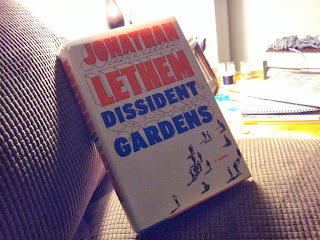Books: Buddha, volumes 1 – 8
Author and artist: Osamu Tezuka
Published: 2003 – 2005 translation from Vertical (mirrored artwork, so it reads
left to right)
Page: Oh geez. I forgot to write that down. They average about 350 a volume,
so, that times eight is 2,800. Ish.
Here’s where I’m coming from with Tezuka: I already know he’s
awesome, thanks to my now-ex-boyfriend-but-still-book-friend’s research and
enthusiasm and willingness to lend reading material, and I’ve wanted to read Buddha
for a longass time but have only just found all eight volumes sitting on one
library shelf.
And boy howdy I’m glad I got them all at once (“There’s a
lady out here with a bunch of books…”) because I burned through them like the
fire that’s always cropping up and burning villages to the ground and making
orphans and vigilantes of everybody.
The storyline rests on the solidifying backbone of Prince
Siddhartha, his quest to outsmart his fear of death, his enlightenment, and his
spreading said enlightenment. It’s profound and spiritual without being overtly
religious, and Tezuka’s so good at showing Siddhartha’s humanity in the lines
of his face when he’s trying to stay stoic and his outburst of doubt and pain
as he grows into his role.
What struck me most was the motif of sacrifice. Like, a
rabbit throws itself into a fire so a starving monk can eat kind of sacrifice.
Within the first ten pages. Life is short and brutal so why not make it count
for more in the end, right? We’re all connected, and while that freaks me out a
little for reasons I don’t really want to poke at, it provides an elegant flow
to the life cycle and why (some) things happen.
This is heavy stuff, so I’m going to take a list to
appreciate some of the ways Tezuka reminds us to not take everything so
seriously:
·
Young Tatta is totally Astroboy. Right? Then as
he grows up, Tezuka gives him this great galumphing walk and bloodthirsty
vengeance that Buddha manages to tamp down, sort of, until the ink spray of
Tatta’s violent arrow death.
·
Everything is so cyclic that more than once I
thought about saying out loud to these books, “Can’t you people learn?” but
then Buddha does that, and those are his best moments of humanity because he’s
trying to enlighten you people, dammit.
·
Anytime anything ridiculous comes up, an
explosion of Tezuka pig doodles burst into a panel to let you know. I think
real life should have that sort of notation.
·
Is going topless just a thing in India, or was
it in Buddha’s time? If so, that historical detail is recorded very thoroughly.
·
And on the topic of being completely
superficial, why did Buddha’s hair become, like, I don’t know, is that stone?
And why did his ears start drooping down? There wasn’t any mention of it except
the visual, and it was too different for the explanation to be “well, he done
got old.”
This is a good epic with lively artwork, engrossing scenery,
interesting characters, and themes that tackle no less than humanity’s own
place in the cosmos. Go read it.

























